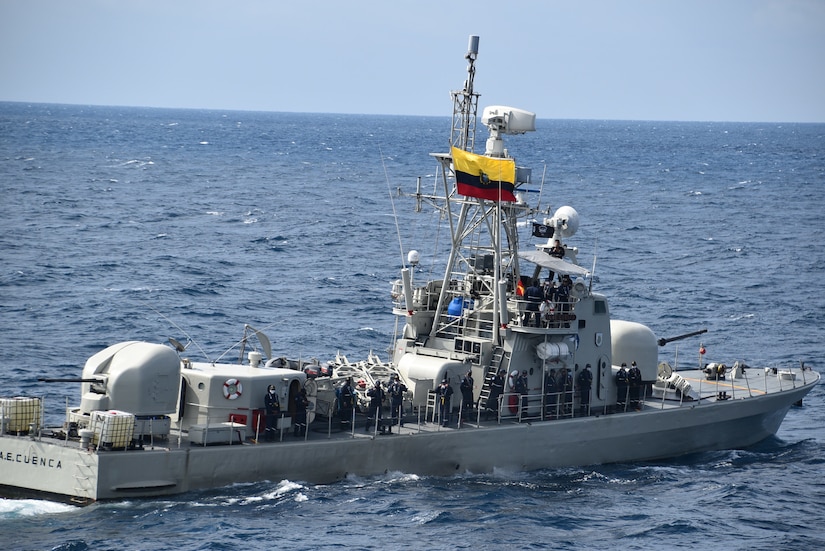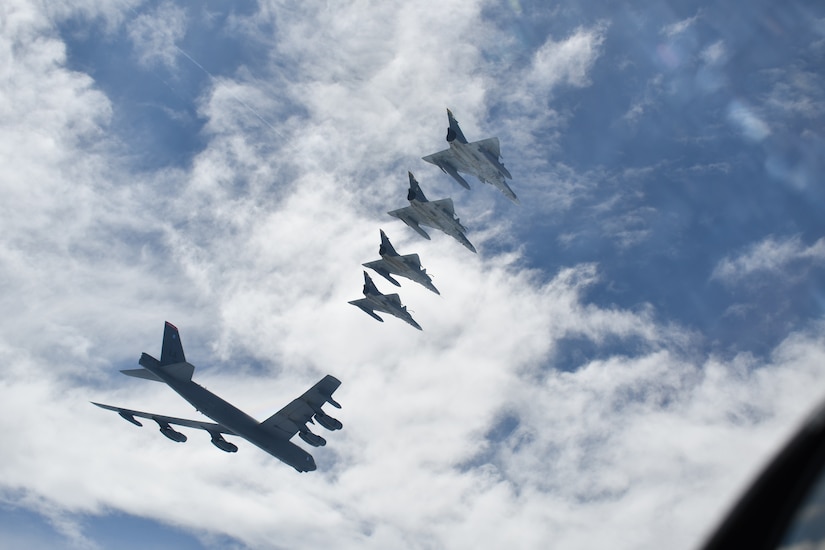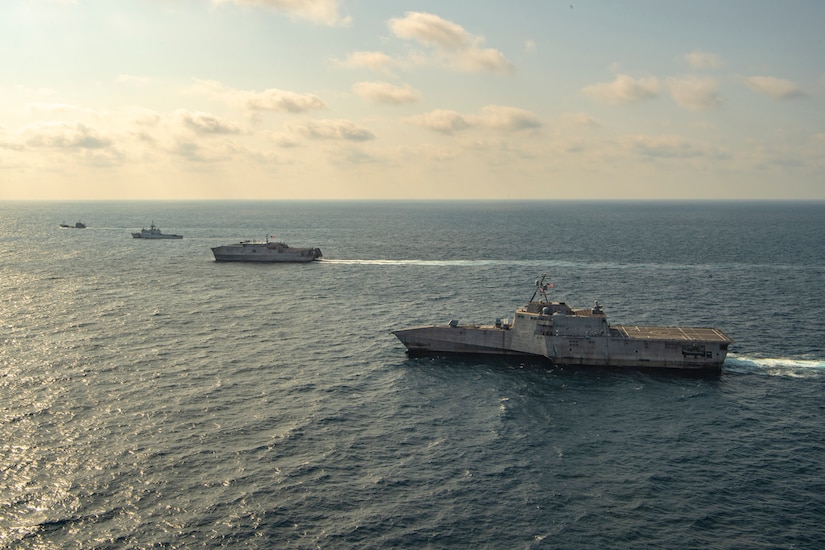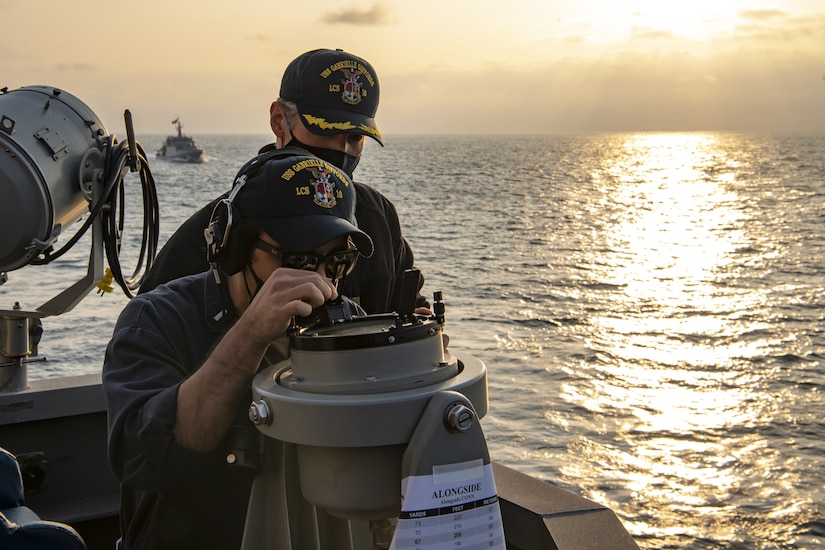Jan. 15, 2021 | , DOD News
Two key concepts of the National Defense Strategy are partnerships and expanding the competitive space in all domains — and that's what the Defense Department is doing in the U.S. Southern Command and globally, said Navy Adm. Craig S. Faller.
Faller, commander of Southcom, said yesterday that those efforts include training and education with partner nations, security cooperation, fighting transnational criminal organizations, stopping illegal fishing, exercises, personnel exchanges, planning and intelligence sharing and having a military presence there to assist and reassure.

It's in everyone's interest in this hemisphere to have partners with strong military capabilities, Faller told virtual attendees of the Surface Navy Association Annual National Symposium.
He said one example is Colombia, which has a cutting-edge military force. Colombians are also producing quality vessels in their shipyards and selling them to other nations in South America and the Far East. Brazil, as well, has invested in a capable navy.
Chile, Colombia, Brazil, Argentina, Ecuador, Panama, Peru, Dominican Republic, Uruguay and other nations, including NATO allies, have taken part in the annual UNITAS exercises, he said.
Ecuador led UNITAS in 2020, despite COVID-19 and budget challenges that had caused the country to be absent from the global scene for over a decade.
"Our ability to target threats doubled," Faller said. "And our partner capacity went from about 48% to 60%. So, we've got to take care of today's threats to expand the competitive space."


Humanitarian missions are also an important aspect of strengthening partnerships, he said.
In November, a Category 4 and 5 hurricane slammed into Central America, and the DOD along with the Coast Guard assisted in saving more than 1,000 lives.
Additionally, the two Navy hospital ships routinely make port calls in Southcom, he added. They're treating many patients and spreading goodwill.
Faller said partnerships are important for everyone in this hemisphere.
China remains a significant threat to this hemisphere and is seeking deep-water ports in El Salvador, Jamaica and elsewhere, and the Chinese are trying to exert control over the Panama Canal. They're also trying to gain access to inland waterways in Brazil and neighboring countries through tugboat and dredging contracts, he said.
Chinese fishing fleets are harvesting illegal catches in many areas of Southcom, he added.

The Chinese are also trying to sell their 5G network equipment, which is also a threat to security, he said.
Besides China, Russia, Iran, Cuba and Nicaragua are trying to destabilize democracies in the area and are spreading disinformation and engaging in criminal activities, he said.
Therefore, it's in the interest of partners in this hemisphere to remain united and to work together to maintain peace and prosperity for all, he said, noting that, after Asia, Latin America is the United States' largest trading partner.








No comments:
Post a Comment